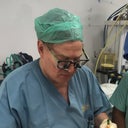Posted underLower Facelift q&a
premierdecorApr 12, 2017
Answers (11)
From board-certified doctors and trusted medical professionals
Dr. Ronald Schuster, MD

RM
Dr. Ronald Schuster, MD
Board Certified Plastic Surgeon
Answer
Dr. John Michael Thomassen, MD

JM
Dr. John Michael Thomassen, MD
Board Certified Plastic Surgeon
Answer
Dr. Zoran Potparic, MD

ZM
Dr. Zoran Potparic, MD
Board Certified Plastic Surgeon
Answer
Dr. Tanveer Janjua, MD

TM
Dr. Tanveer Janjua, MD
Board Certified Facial Plastic Surgeon
Answer
Dr. Larry Weinstein, MD

LM
Dr. Larry Weinstein, MD
Board Certified Plastic Surgeon
Answer
Dr. Henry Wells, MD
HM
Dr. Henry Wells, MD
Board Certified Plastic Surgeon
Answer
Dr. Michael Zenn, MD
MM
Dr. Michael Zenn, MD
Board Certified Plastic Surgeon
Answer
Dr. William Portuese, MD
WM
Dr. William Portuese, MD
Board Certified Facial Plastic Surgeon
Answer
Dr. Talon Maningas, DO
TD
Dr. Talon Maningas, DO
Facial Plastic Surgeon, Board Certified in Otolaryngology – Head and Neck Surgery
Answer
Dr. Robert E. Zaworski, MD (retired)
R(
Dr. Robert E. Zaworski, MD (retired)
Board Certified Plastic Surgeon
Answer
More Lower Facelift Questions
See all Lower Facelift Q&A
WE SEND PRETTY
EMAILS
What’s trending? Who’s turning heads? Which TikTok myths need busting? We’ve got you. No fluff, no gatekeeping—just real talk. Get our free, unfiltered newsletter.





